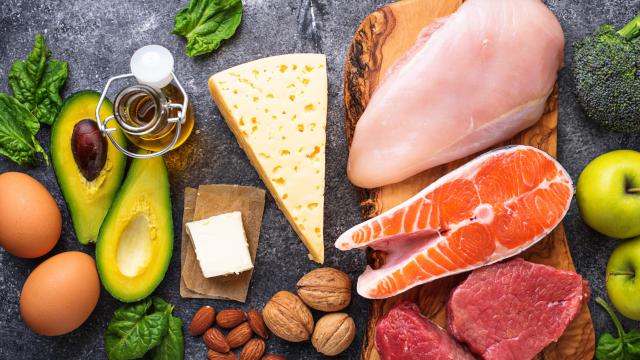U.S. News has once again ranked all the diets, with the groundbreaking result that…they are all different ways to eat food. Amazing. Their website does provide a nice comparison of the various diets’ pros and cons, but the whole concept of declaring one diet better than another is broken to begin with.
As we’ve seen with the “Dirty Dozen” produce rankings, a ranking assumes that each thing is competing against the others, and that those at the top of the list are better than those at the bottom. With vegetables as with diets, there are a whole bunch that are just fine, and you don’t need to pit them against each other any more than you need to choose which of your children is your favourite.
Then there’s the question of what a “diet” really is, anyway; as a word of the English language, diet can mean many different things. If somebody is “going on a diet,” we understand that they are trying to create a calorie deficit to lose weight. If instead we read that “the diet of wild lemurs varies among species,” we understand the word to mean a description of the totality of things a lemur typically eats.
The 51 diets in the U.S. News database form a bizarre mix. Some are vague approaches to eating, like volumetrics; some are commercial products intended to help people lose weight, like Noom or Weight Watchers; still others are science-unsupported crash diets. Putting these disparate items into a lineup is not really helping anyone. U.S. News seemed to understand this on some level, since they only ranked the “best” 35, leaving a pool of particularly bad options — like the Master Cleanse, which I’m not sure fits any definition of a diet, to be honest — off the main list.
I could puzzle over the rankings themselves for days. For example, Atkins and keto are listed as two separate things (they’re arguably not), and both rank below a raw food diet that the list describes as “all but impossible to follow.” Like the paper’s wildly popular college rankings, the diet rankings seem to exist to give us something new to worry and argue about, rather than to help people eat healthier or lose weight.
How to actually choose a diet
First, if you’re looking to lose weight, recognise that all weight-loss diets work the same goddamn way: they give you a framework to eat fewer calories than you burn. The “best” diet to do that is whichever one you find easiest to stick with.
Some people feel great on a keto diet; some find intermittent fasting convenient; some would rather eat low-fat and vegan. It doesn’t really matter, so long as the calorie deficit isn’t too extreme and you’re not depriving yourself of important nutrients like fibre, vitamins, or protein.
Whether you’re trying to change your body weight or not, the basics of a healthy diet are pretty straightforward: lots of fruits and vegetables, enough protein, not too much sugar. If you have specific health concerns that you’ve discussed with a doctor, make sure to account for those. (For example, the DASH “diet” is a list of guidelines you can follow if you need to lower your blood pressure. It involves eating less sodium and more potassium, among other things.) If you’re willing to pay for help, you’re better off consulting a dietitian than buying into the latest expensive weight-loss product.
So are you looking to eat more healthy, lose weight, or both? Find an approach to eating that meets your goals and that you can stick with. If you want some structure, it’s fine to buy a book that gives you recipes and a fancy name for the diet. The top-ranked diet, the Mediterranean diet, is fine. But the #29-ranked paleo diet, despite its silly premise (that cavemen made lots of fake pizzas from almond flour and coconut oil, if I understand correctly), might do the job just as well.

Leave a Reply
You must be logged in to post a comment.